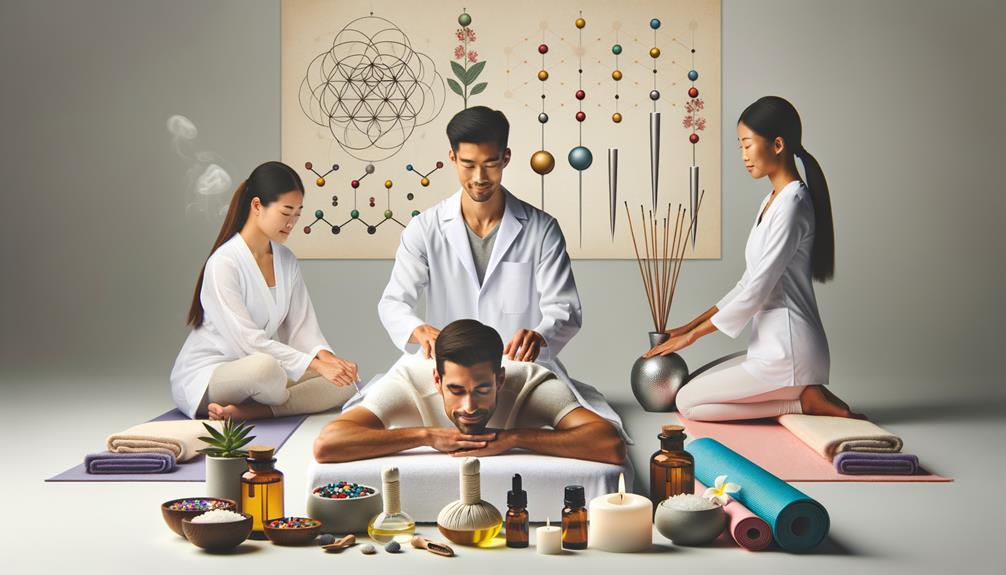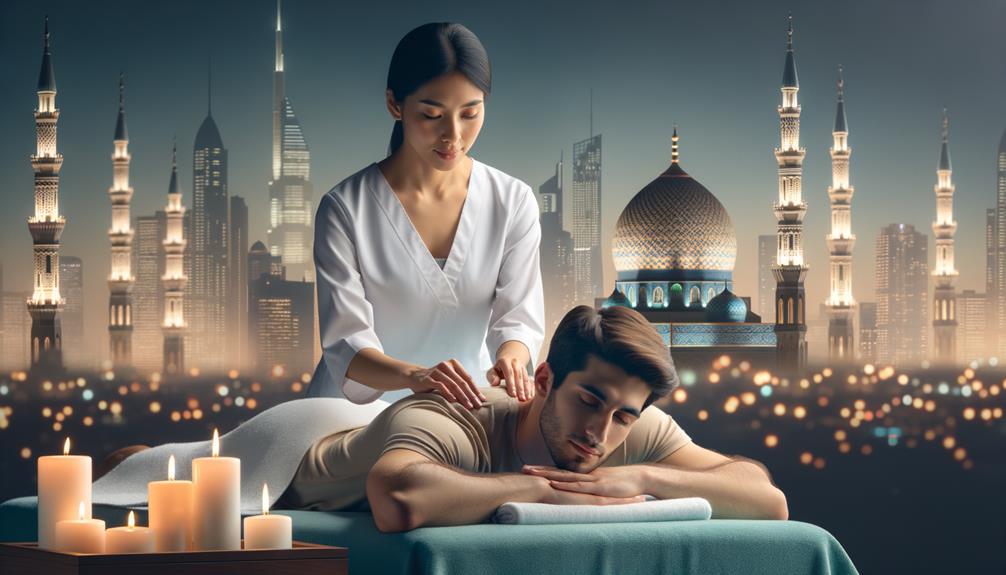The Transformative Power of Integrating Registered Massage Therapy into Holistic Health Practices
As a licensed Registered Massage Therapist (RMT) with over 15 years of experience in holistic health practices, I’ve witnessed firsthand the remarkable benefits of integrating RMT services into comprehensive wellness approaches. This article explores the synergy between Registered Massage Therapy and holistic health methods, offering evidence-based insights into how this integration can significantly enhance overall health and well-being.
Understanding Holistic Health

Holistic health is a comprehensive approach to wellness that considers the interconnectedness of mind, body, and spirit. This philosophy emphasizes:
- Treating the whole person, not just the symptoms
- Addressing root causes of health issues
- Promoting natural healing processes
- Incorporating complementary treatments
Research published in the Journal of Alternative and Complementary Medicine (2020) has shown that holistic health practices can lead to improved health outcomes and higher patient satisfaction rates compared to traditional medical approaches alone.
Decoding Registered Massage Therapy
Registered Massage Therapy is a regulated healthcare profession that plays a crucial role in holistic health practices. RMTs undergo rigorous training and certification processes to develop expertise in:
- Soft tissue and musculoskeletal assessment
- Personalized treatment strategies
- Various massage techniques (e.g., Swedish, deep tissue, myofascial release)

A study in the International Journal of Therapeutic Massage & Bodywork (2019) found that regular massage therapy can reduce chronic pain by up to 28% and improve mobility by 31% in patients with musculoskeletal disorders.
The Synergy of RMT and Holistic Health
When integrated into a holistic health framework, RMT offers multifaceted benefits:
- Physical Health:
- Pain reduction
- Improved circulation
- Increased flexibility and range of motion
- Mental and Emotional Well-being:
- Stress reduction
- Improved mood and mental clarity
- Enhanced body awareness
- Overall Wellness:
- Promotion of mind-body-spirit connection
- Support for other holistic practices (e.g., yoga, meditation)
A meta-analysis published in the Journal of Clinical Medicine (2021) demonstrated that combining massage therapy with other holistic practices resulted in a 40% greater improvement in overall well-being compared to single-modality treatments.
Physical and Mental Benefits of RMT
Continuing with our friendly chat on the topic, let’s consider the real-world physical and mental advantages that RMT services can bring. Think of massage therapy as more than just a stress buster. It’s a powerful means that operates at various levels to rejuvenate your overall health.
- Physical Health: With RMT services, you might notice a significant dip in pain, particularly the persistent kind that doesn’t respond well to traditional treatments. It can help soothe numerous physical discomforts by boosting circulation and increasing flexibility.
- Mental and Emotional Well-being: Massage therapy involves more than just your body. It plays a vital role in mental health, lowering stress levels and bettering mood, making daily life feel a little lighter and easier.
- Overall Well-being: When you include RMT in your holistic health plan, you’re putting your overall wellness at the forefront. It encourages body awareness and mindfulness, two crucial elements in maintaining overall health.
- Holistic Health Approach: RMT services underline the mind-body-spirit connection, a fundamental idea in holistic health, stressing the interrelated nature of all health aspects.
Tailoring Your RMT Experience
To maximize the benefits of RMT within a holistic health framework, consider the following:
- Communicate openly with your RMT about your health goals and concerns
- Experiment with different massage techniques to find what works best for you
- Integrate RMT sessions with other holistic practices for a comprehensive approach
- Maintain consistency in your treatment schedule for optimal results
Integrating Registered Massage Therapy into holistic health practices offers a powerful approach to enhancing overall well-being. By addressing the interconnected aspects of physical, mental, and emotional health, this synergistic combination provides a comprehensive path to wellness. As research continues to support the efficacy of this integrated approach, more individuals are likely to experience the transformative benefits of combining RMT with holistic health practices.
Frequently Asked Questions
What Is Holistic Approach in Massage?
A holistic approach in massage considers the interconnectedness of physical, mental, and emotional well-being. It aims to address physical symptoms and underlying imbalances to promote overall health.
How does a holistic massage differ from a standard massage?
While a standard massage primarily focuses on physical relaxation and tension relief, a holistic massage also incorporates techniques that address mental and emotional aspects. It often combines various modalities to create a more comprehensive healing experience.
What role does massage play in integrative medicine?
In integrative medicine, massage therapy is a complementary treatment that supports conventional medical care. By addressing physical and emotional health aspects, it helps manage pain, reduce stress, and improve overall quality of life.
How does therapeutic massage differ from integrative massage?
Therapeutic massage typically targets specific physical issues or injuries, while integrative massage takes a more comprehensive approach. Integrative massage combines various techniques to address physical, emotional, and energetic imbalances, aligning with the principles of holistic health.




